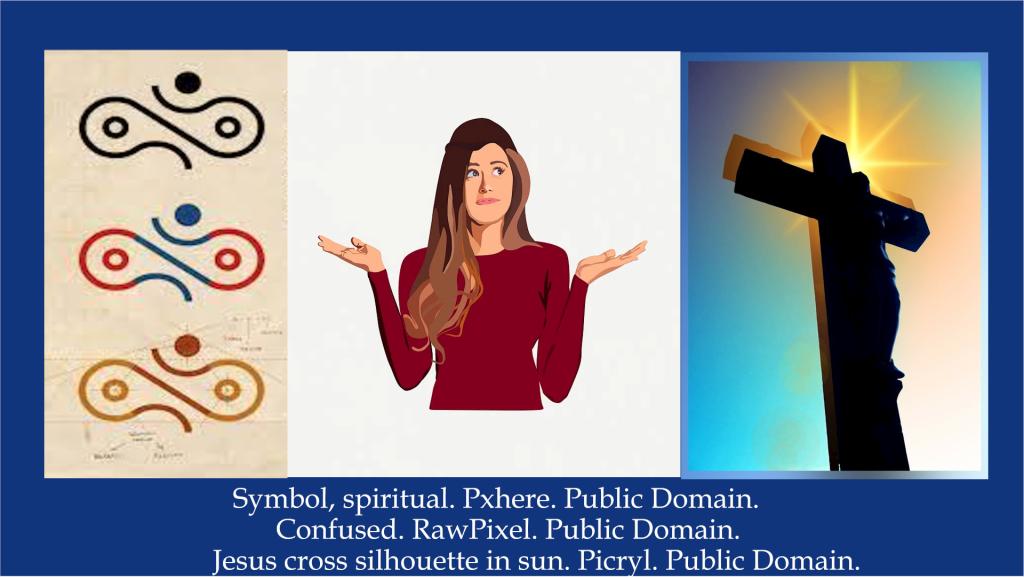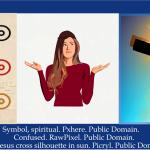The Bible covers everything from creation of the earth to destruction. It includes wiping out entire civilizations, invasions of other countries in the name of God, miracles, religion that ignores prophets in exchange for legal opinions and ceremony, and changes in contracts with God. The Jews had contracts (covenants) with God. The most recent contract is love, ushered in by Jesus.
Why would people not be perplexed as to what it all means?

Reference scripture
“So every good tree bears good fruit, but the bad tree bears fruit. A tree cannot produce fruit, nor can a tree produce fruit. Every tree that does not bear fruit is cut down and thrown into the fire. So then, you will know them by their fruits.” – Matthew 7: 17-20 (NASB):
Integrity and unity of theme and purpose
Literature can be evaluated by its integrity. Is the message consistent? Are there themes offered that are present throughout? Is there a purpose given?
The Bible offers both beliefs and actions of the people. They are examples to us of both virtuous behavior and immoral.
The Bible offers a variety of opinions from judges, prophets, kings, those in foreign lands, immigrants, chroniclers, various religious groups that varied in their thoughts about serving God, and many more. Our pastor recently mentioned at least a dozen.
The Bible isn’t a history or science book. When the Bible was written, ideas about history and science were very different from today’s standards. These stories are observations from people of that time who saw things through the lens of their place in history and religious beliefs.
Remarkably, archaeology of the Bible lands and critical interpretation of the literature continue to confirm that the history was based on fact. Many believe that the evidence would hold up in court.
The Themes of the Bible
The Bible has many themes, including creation, redemption, and the relationship between God and humanity.
More specifically, I believe the character of God is reflected in God’s expectations of us.
God’s expectations of us
We can find God’s expectation of us in the summaries given in scripture.
The Prophet Micah’s summary of the Hebrew Bible
We’re given a summary in Micah 6:8 (ESV): “He has told you, O man, what is good; and what does the Lord require of you but to do justice, and to love kindness, and to walk humbly with your God?”
Justice in the Bible means to make right. It’s not about throwing people in prison for crimes. It’s rooted in God’s nature and requires that everyone be treated with the same respect and standards, regardless of social categories like race, gender, or ethnicity.
Walk humbly with God means to seek God’s guidance and not go your own way.
Jesus’ summary of the Bible
Jesus summarized the Hebrew Bible in these words in Matthew 22: 37-40 (NASB): “‘You shall love the Lord your God with all your heart, and with all your soul, and with all your mind.’ This is the great and foremost commandment. The second is like it, ‘You shall love your neighbor as yourself.’ On these two commandments depend the whole Law and the Prophets.’”
To love God means that all that we are reflects the God of love. Love isn’t so much an emotion in this instance, but a way of being that cherishes all that we appreciate about God and all that God asks of us which shows in our thinking and actions.
Jesus is the example to us: “John 15:12 (ESV): “This is my commandment, that you love one another as I have loved you.”
The theme is about love. Love is the primary character of God. Love is the lens through which we interpret the Bible. Most major religions have love as a primary theme.
The outcome of our morally sound belief and behavior
Does the Bible just throw platitudes at us that have no practical implication? No. Behaving in the way God asks of us and Jesus showed us changes our and others’ lives for the better.
Matthew 25:35-44 (ESV) “For I was hungry and you gave me food, I was thirsty and you gave me drink, I was a stranger and you welcomed me, I was naked and you clothed me, I was sick and you visited me, I was in prison and you came to me.’ Then the righteous will answer him, saying, ‘Lord, when did we see you hungry and feed you, or thirsty and give you drink? And when did we see you a stranger and welcome you, or naked and clothe you? And when did we see you sick or in prison and visit you?’
Jesus taught the disciples that they would share in His love (John 15:9–10), His joy (John 15:11; 17:13), and His peace (John 14:27). The fruit of the Spirit is the description of the primary attributes of Christian character.
Jesus said we will know his followers as opposed to evil or misleading persons, by their works, in Matthew 7: 17-20 (NASB): “So every good tree bears good fruit, but the bad tree bears fruit. A tree cannot produce fruit, nor can a tree produce fruit. Every tree that does not bear fruit is cut down and thrown into the fire. So then, you will know them by their fruits.”
Galatians 5:22-23 (ESV) “But the fruit of the Spirit is love, joy, peace, patience, kindness, goodness, faithfulness, gentleness, self-control; against such things there is no law.”
The purpose of the Bible?
The Bible’s message is about God’s work to save his people, his character as a judge, and his grace toward sinners.
Our purpose is, in reflecting the character of God, we glorify God. God has no actual needs. Glorifying God is about us in that we show our appreciation of God’s ways.
We are to have a restored relationship with God, not troubled by our misdeeds, then love others the same way God loves them so they too can have a restored relationship with him.
Interpretation of the Bible
Start with the lens of love and that what God expects of us, which reflects the character of God. As a unity of theme reflecting the integrity of the Bible, everything we read should be seen through this lens and no other. God is not an impetuous child who likes us one moment, then the next throws a temper tantrum and punishes us. God appreciates and tolerates us as we appreciate and tolerate our own children, but even more so.
Love includes mercy and forgiveness. We are to reflect that in our treatment of others. We should not judge others because judgment implies a lack of mercy and forgiveness. Ultimate judgment of our deeds is in God’s hands.
See the literature as a whole
Every verse in the Bible can be taken out of context to have a different meaning. This is true of any statement made by anyone.
Expository study of the Bible takes verses and expounds on what it says.
Topical study of the Bible compares similar verses about the same thing and derives meaning from those. This gives a much fuller presentation of meaning, so is less subject to misinterpretation.
Context
Understanding the context of literature written from 2000 to 3200 years ago is difficult because we don’t know the times. Language meaning changes. Often, historical context is absent. All chapters and verses in the Bible need to be seen in their historical context, if possible.
When we don’t understand context, then topical study comparing many verses on the same subject is a must. Sometimes we just have to say, “We don’t have enough information to determine what this means.”
For the Hebrew Bible texts (Old Testament), we have Jewish sources to provide context, coming from the Midrash and later Pharisee writings. These often give interpretive context to consider.
Example: Interpreting the creation myth
Most cultures have some kind of creation myth and great flood myth. People want an explanation for why we are here and religions give that to them. Flooding has regularly occurred throughout history, so floods feature prominently in stories and religions provide reasons for them.
The Hebrew Bible creation story incorporates themes from Mesopotamian mythology and ancient near eastern cosmology, but adapts them to the authors’ unique belief in one God in Judaism.
Judaism, from which came the Adam and Eve story, interprets the Adam and Eve story differently from Christianity. Judaism believes that Adam and Eve aspired to be God’s helper, so ate the apple to get wisdom. Christianity interprets the story as misbehavior that resulted in a curse on all people.
I interpret the story as the ancient people telling us the inevitable result of people’s ravenous curiosity, which happily means we now get to struggle to learn more about the world and human behavior. If the story is anything more than a parable, then God knew this would happen because God created us and knows human behavior.
The three different interpretations show different mindsets
Judaism casts humans in a positive light.
Christianity emphasizes the consequences of sin.
My interpretation is gestalt and pragmatic, emphasizing the inevitability of human nature and the benefit.
These show the result of biases on interpretation.
Conclusion
Studying and understanding the Bible is challenging. The Bible tells stories without giving explanations. The reader is left to form their own conclusion.
Many people find that as they age and grow spiritually, each story brings new revelations or they see different things in them.
As in the Adam and Eve story, the theoretical mindset of the reader shapes the interpretation of the story.
By using the method for understanding the Bible that I presented in this blog-article, it’s less likely that individual biases affect the interpretation. Interpretative biases and differences are common even among Bible translators.
Jesus’ ministry was the capstone of Biblical literature
God is present in the mission of Jesus, who showed us the way to live. Jews consider the Hebrew Bible itself a guide on the way to live. Much of what Jesus said is already present in the Hebrew Bible, especially in the prophets. But he changed the emphasis for Jews who would accept it, and then sent the message of forgiveness to non-Jews. He didn’t send the Hebrew law to non-Jews and this is something people often don’t understand from cursory reading of the Bible.
Understand the grand mission of Jesus and his followers is to reconcile the world with God by removing the stain and downward spiral of immoral behavior. Immoral behavior drags people’s respect for themselves down and is often an insurmountable object to reconciling with others and God. Jesus brought the Good News of forgiveness, which is a free gift from God and the first step.
To get forgiveness, people have to ask God so that their offences don’t drag them down and cause isolation from others. Then they have to make things right with those they have offended and ask them for their forgiveness. Then they have to try and be better. We all fail.
Those who follow these steps are following the way Jesus showed us and are in the Kingdom of God. God accepts all. Entering into the covenant of love with God has its benefits, including no judgment.
Please use the lens of love to study the Bible and appreciate each verse is part of the whole and not given in isolation from the whole.
_________________________________
My friend, David Ketcherside, former Christian broadcaster, has written a book series that I gave feedback on. It’s for men, written from his experience, thoughtful analysis, and heart. Gen Z and X would find it very helpful. It’s available in print, on Kindle, and as an audiobook on Audible. Check out The Whole Dude. His description: “My hope is to remind readers what being whole looks like, and help them recognize the distortions that stop us from feeling totally awesome all the time.” He’s also excellent at marketing if you have marketing needs.
Probability Space
What probability spaces can we open in our minds to reconsider how we interpret the Bible?
Potential Space
If you think creatively and allow your mind to wander and explore, how can we love others better, reflecting the nature of God as shown to us by Jesus?
________________________
– Dorian
Our answer is God. God’s answer is us. Together we make the world better.
Restore and recreate. Take time to celebrate life. Laugh, sing, and dance regularly, even every day. Happy.
Bible scripture verses are New American Standard Version (NASB), unless noted.
Author and books
Appease the Volcano: What does God require from people? The voices of the ancients from many religions echo much of the same things: It starts with law, then mercy and forgiveness, then love.
The Prophetic Pattern: Ancient and Modern Prophecy: How to distinguish the intent of various types of prophecies and oracles, both ancient and modern.
Preparing For the Future Of Work and Education: Analysis of the kinds of jobs that AI and Robotics will displace, and the educational requirements for them. AI will replace or augment thirty percent of jobs. This is an in-depth analysis citing many authoritative sources.
Author Website: Dorian Scott Cole
















